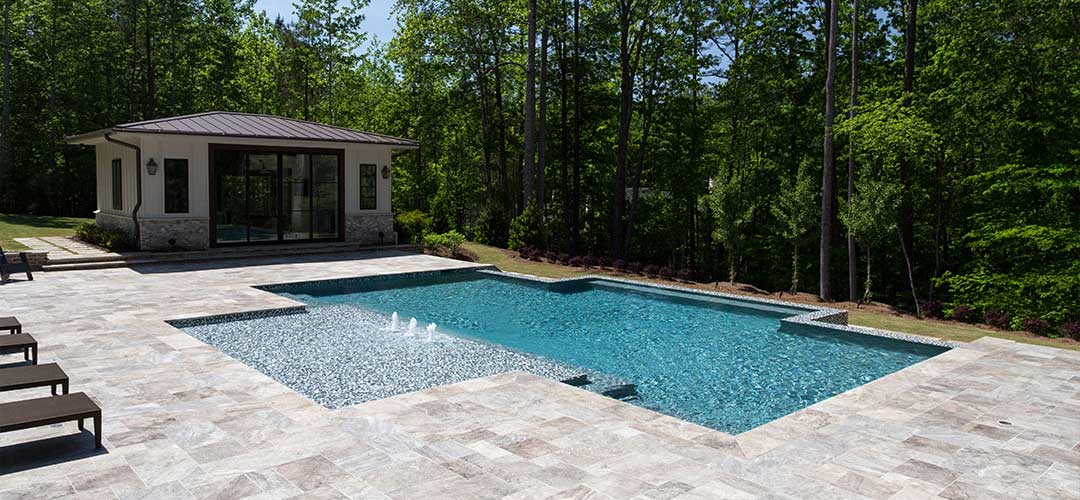Travertine pavers are a popular choice for outdoor spaces thanks to their natural beauty, slip resistance, and durability. Whether you’ve installed them around a pool, on a patio, or as part of a garden walkway, a common question arises: Do I need to seal outdoor travertine pavers?
The short answer? Yes—sealing is highly recommended. While travertine is a durable natural stone, sealing offers several long-term benefits that protect your investment and keep your pavers looking their best.
Why Seal Travertine Pavers?
1. Protection from Stains and Spills
Travertine is a porous stone, which means it can easily absorb liquids. Without a proper sealant, oil, wine, dirt, and other outdoor contaminants can soak into the stone, leaving permanent stains. Sealing acts as a barrier, making cleanup much easier.
2. Prevention of Mold, Mildew, and Algae
Outdoor areas—especially around pools—are prone to moisture, which can lead to mold and algae growth. A high-quality sealant helps resist moisture absorption, reducing the chances of discoloration and slippery buildup.
3. Enhancement of Natural Color
Some sealers are designed to enhance the natural tones and veining of travertine, giving the stone a richer, more vibrant appearance. This can elevate the look of your outdoor space without changing the texture or integrity of the stone.
4. UV and Weather Resistance
Sealing helps protect travertine from the effects of sun exposure, rain, and temperature changes. Over time, unsealed pavers can fade, discolor, or erode faster. A UV-stable sealer provides an added layer of defense against the elements.
How Often Should Travertine Be Sealed?
Typically, outdoor travertine pavers should be sealed every 2–3 years, but this can vary based on:
-
The type of sealer used (some last longer than others)
-
The amount of sun and water exposure
-
The level of foot traffic
A quick test to check if your pavers need sealing: sprinkle water on the surface. If it immediately soaks in, it’s time to reseal.
What Type of Sealer Should You Use?
There are two main types of sealers:
-
Penetrating (Impregnating) Sealers: These soak into the stone and provide invisible protection from within. Best for high-traffic or wet areas like driveways or pool decks.
-
Enhancing Sealers: These penetrate the stone while also enhancing its color and giving it a “wet look.”
Choose a high-quality, breathable sealer designed for natural stone and exterior use. Avoid cheap sealers that may trap moisture or wear unevenly.
Final Thoughts –
While sealing travertine pavers isn’t mandatory, it’s one of the best ways to extend the life and beauty of your outdoor surfaces. It’s a small investment that pays off by preventing costly repairs and preserving your pavers’ appearance for years to come.
If you’re unsure which sealer to choose or how to apply it, consult a stone care professional to ensure the job is done right.
Looking for premium travertine pavers or sealing products? Contact us today for expert recommendations and quality materials to elevate your outdoor space.

